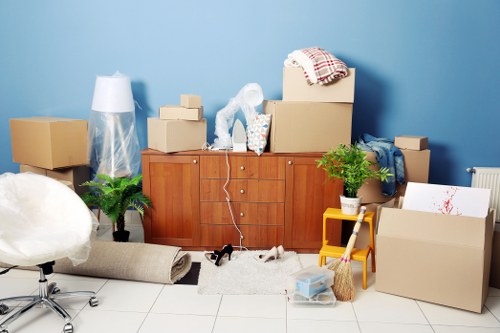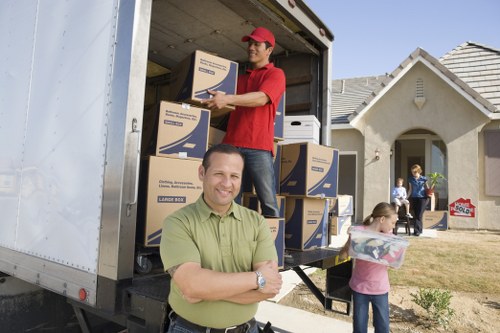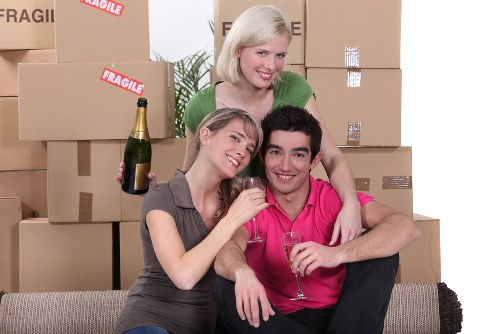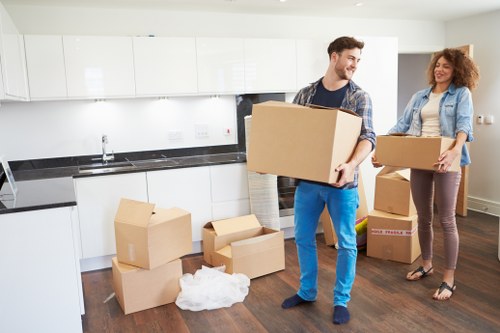White Goods Recycle West London

In West London, the responsibility of disposing of old appliances, commonly known as white goods, is more manageable than ever. From refrigerators to washing machines, these essential household items can be recycled efficiently, ensuring minimal environmental impact and compliance with local regulations.
Recycling white goods not only helps in reducing landfill waste but also conserves valuable resources by reusing materials. West London offers several recycling options tailored to meet the needs of its diverse communities, making it easy for residents to contribute to a greener future.
Understanding the process and benefits of white goods recycling is crucial. It empowers individuals to make informed decisions about their household appliances, promoting sustainability and environmental stewardship.
Why Recycle White Goods?

Recycling white goods is essential for several reasons. Firstly, these appliances contain materials like steel, copper, and plastics that can be recovered and reused, reducing the need for new raw materials. This not only conserves natural resources but also lowers the energy consumption required for manufacturing new products.
Secondly, improper disposal of white goods can lead to environmental pollution. Components such as refrigerants and coolants in fridges and freezers are harmful if released into the atmosphere. By recycling, these substances are safely managed and treated, preventing environmental damage.
Lastly, recycling white goods supports the local economy by creating jobs in the recycling and manufacturing sectors. It fosters a circular economy where products are reused, repaired, or repurposed, contributing to sustainable economic growth.
How to Recycle White Goods in West London

Recycling white goods in West London is a straightforward process with multiple options available to residents. Here are the primary methods:
- Local Recycling Centers: West London hosts several recycling centers where residents can drop off their old appliances. These centers are equipped to handle large items and ensure they are processed correctly.
- Collection Services: Many local councils offer collection services for bulky waste, including white goods. Scheduling a pickup can be a convenient option for those unable to transport heavy appliances themselves.
- Retailer Take-Back Programs: Some appliance retailers provide take-back services when you purchase a new appliance. This ensures that your old white goods are recycled responsibly.
- Charity Reuse: If your appliance is still functional, donating it to a local charity can extend its life and benefit those in need.
Environmental Benefits of Recycling White Goods

Recycling white goods significantly benefits the environment. It reduces the volume of waste sent to landfills, decreasing methane emissions and preserving landfill space for non-recyclable materials.
Moreover, recycling conserves natural resources by reusing materials that would otherwise require extraction and processing. This leads to a reduction in habitat destruction, water usage, and pollution associated with mining and manufacturing industries.
Additionally, recycling white goods lowers greenhouse gas emissions. By reusing materials, the energy required for producing new products is minimized, contributing to the fight against climate change.
Steps to Prepare Your White Goods for Recycling

Proper preparation of white goods is essential to ensure effective recycling. Follow these steps to get your appliances ready:
- Disconnect: Safely unplug the appliance and remove any detachable parts, such as shelves or drawers.
- Clean: Wipe down the appliance to make it more presentable and hygienic for recycling facilities.
- Remove Hazardous Materials: Ensure that any substances like refrigerants or oils are properly disposed of by professionals.
- Sort Components: Separate recyclable materials if possible, such as metals and plastics, to facilitate the recycling process.
- Check Local Regulations: Different areas may have specific guidelines for recycling white goods. Ensure you comply with local requirements.
Costs and Fees Associated with Recycling
Recycling white goods in West London can be cost-effective, but fees may vary based on the method chosen:
- Free Services: Many local councils offer free collection services for residents, especially for bulky waste items like white goods.
- Retailer Fees: Some retailers may charge a fee for take-back services, though discounts or incentives might be available when purchasing new appliances.
- Recycling Center Charges: While most recycling centers aim to keep costs minimal, some may charge a nominal fee depending on the type and size of the appliance.
- Donation: Donating a functional appliance typically involves no cost and may provide tax benefits.
Regulations and Compliance
West London adheres to strict regulations regarding the disposal and recycling of white goods. The Waste Electrical and Electronic Equipment (WEEE) Directive mandates that manufacturers and retailers take responsibility for the end-of-life management of their products.
This ensures that white goods are recycled responsibly, minimizing environmental impact and promoting sustainable practices. Compliance with these regulations is crucial for both service providers and consumers to maintain high environmental standards.
Choosing the Right Recycling Service
Selecting a reputable recycling service in West London is vital to ensure your white goods are handled properly. Consider the following factors:
- Certification: Ensure the service is certified and adheres to local recycling regulations.
- Reputation: Look for reviews and testimonials to gauge the reliability and quality of the service.
- Convenience: Choose a service that offers flexible collection times and multiple drop-off locations.
- Cost: Compare fees and services to find an option that fits your budget.
- Environmental Practices: Opt for services that prioritize sustainable methods and minimize environmental impact.
Benefits for West London Communities
Recycling white goods brings numerous benefits to West London communities. It fosters a sense of environmental responsibility, encouraging residents to participate in sustainable practices. Additionally, it supports local recycling industries, creating jobs and stimulating economic growth.
Community awareness programs and initiatives can further educate residents about the importance of recycling, leading to higher participation rates and more significant environmental impacts.
Local Areas for White Goods Recycling in West London
West London encompasses several neighborhoods, each offering unique recycling solutions for white goods. Here are some of the closest areas:
- Chiswick: Known for its vibrant community, Chiswick provides efficient recycling centers and collection services.
- Ealing: Ealing offers extensive recycling programs, including convenient drop-off points for large appliances.
- Hammersmith: Residents in Hammersmith can access various recycling facilities and take-back services through local retailers.
- Brentford: Brentford’s recycling services are well-organized, ensuring timely collection and processing of white goods.
- Kensington: Kensington emphasizes sustainable recycling practices, providing multiple options for residents to dispose of their appliances responsibly.
- Fulham: Fulham offers both free and paid recycling services, catering to different needs and budgets.
- Hounslow: Hounslow’s recycling centers are equipped to handle a wide range of white goods, ensuring thorough processing.
- Acton: Acton facilitates easy recycling through community programs and local recycling hubs.
- Harrow: Harrow provides comprehensive recycling services, including scheduled collection for bulky items.
- Richmond: Richmond focuses on eco-friendly recycling practices, promoting the reuse and safe disposal of white goods.
- Kilburn: Kilburn offers accessible recycling options, making it convenient for residents to dispose of their appliances.
- Wimbledon: Wimbledon supports recycling through various initiatives and partnerships with local businesses.
- Pallion: Pallion provides efficient recycling services, ensuring minimal environmental impact.
- Twickenham: Twickenham’s recycling facilities are designed to handle all types of white goods, promoting sustainability.
- Shepherd’s Bush: Shepherd’s Bush offers diverse recycling solutions, catering to the needs of its dynamic community.
Future of White Goods Recycling in West London
The future of white goods recycling in West London looks promising. With increasing environmental awareness and advancements in recycling technologies, the efficiency and effectiveness of recycling processes are expected to improve.
Additionally, community initiatives and government support will likely lead to more comprehensive recycling programs, making it easier for residents to participate in sustainable practices.
Innovations such as smart recycling bins and enhanced take-back schemes are on the horizon, further simplifying the recycling process and encouraging higher participation rates.
Conclusion
Recycling white goods in West London is a vital practice that benefits both the environment and the community. By understanding the available options and adhering to proper recycling methods, residents can contribute to a sustainable future.
Whether you choose to utilize local recycling centers, take advantage of collection services, or engage in retailer take-back programs, every effort counts towards reducing waste and conserving valuable resources.
Embracing recycling not only addresses current environmental challenges but also paves the way for a cleaner, greener West London for generations to come.
FAQs
- Q1: What are white goods?
A1: White goods refer to large household appliances such as refrigerators, washing machines, dishwashers, and ovens. These items are typically white or have a light-colored exterior and are essential for daily home activities.
- Q2: How can I find a recycling center for white goods in West London?
A2: You can locate recycling centers by visiting the West London council website, using online directories, or contacting local waste management services. Many centers offer specific areas for recycling large appliances.
- Q3: Are there any costs associated with recycling white goods?
A3: Recycling costs can vary depending on the method chosen. Some services, like local council collections or charity donations, may be free, while others, such as certain recycling centers or retailer take-back programs, might charge a nominal fee.
- Q4: Can I recycle my white goods if they are still functioning?
A4: Yes, if your appliance is still in working condition, you can donate it to a local charity or sell it. This extends the appliance's life and benefits others, while also contributing to environmental sustainability.
- Q5: What should I do before recycling my white goods?
A5: Before recycling, ensure your appliance is disconnected and clean. Remove any detachable parts and ensure hazardous materials like refrigerants are properly handled. It's also helpful to check with your chosen recycling service for any specific preparation requirements.